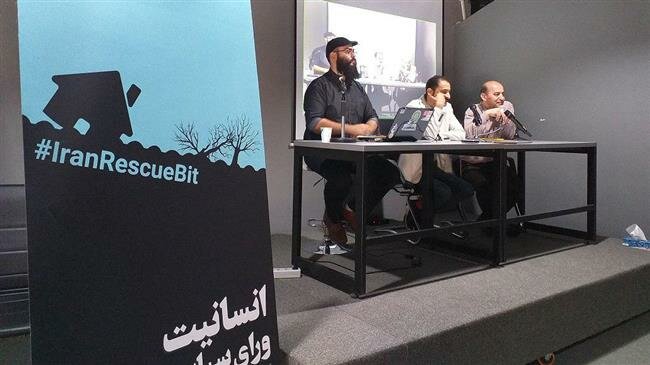The campaign is hoped to provide an alternative route after US sanctions prevented the Iranian Red Crescent Society (IRCS) from obtaining any foreign financial aid to assist victims of the flooding that started in early March and carried through April.
A statement released by the local cryptocurrency community on Tuesday said it had decided to launch the campaign because the international bank accounts of the IRCS have been blocked due to the US sanctions.
“The choking US economic sanctions, put in place in several tranches after President Donald Trump in May 2018 unilaterally withdrew from Iran’s nuclear deal with world powers, have cut off the flow of international aid to Iranian flood victims,” the statement said.
“This is while humanitarian causes are deemed non-sanctionable under international law.”
At least 76 people were killed after the heaviest rains recorded in the country in 70 years more than two-thirds of the country in 28 provinces. Surging rivers burst their banks, sending an avalanche of floodwaters into villages and towns which drove hundreds of thousands of people from their homes.
The flooding caused an estimated $2.5 billion in damage to roads, bridges, homes and farmland, Interior Minister Abdolreza Rahmani Fazli has said. It affected 4,400 villages, damaged 14,000 kilometers of roads and destroyed more than 700 bridges.
While US Secretary of State Mike Pompeo said at the time that Washington was ready to help via the Red Cross and Red Crescent, the IRCS said no foreign cash help had been given to the society.
According to the statement of Iran’s local cryptocurrency society, “the volume of financial and non-financial international aid to Iran’s flood victims has been insignificant compared to responses witnessed to natural catastrophes in other countries”.
That means Iran has had to rely on its own resources to cope with the disaster, and so it does. Since its onset, the tribulation has triggered a deluge of humanitarian aid flowing in from every corner of the vast country.
However, the volume of damage is so high that people living in affected areas still face a number of small and major challenges months after the floods first hit.
Members of Iran’s local cryptocurrency and blockchain ecosystem are convinced that they can still bring international donors on board.
“The unique decentralized nature of cryptocurrencies means they cannot be controlled or supervised by any central authority,” they said in their statement.
“This will allow people from all over the world to donate to Iranian flood victims anonymously and quickly in spite of sanctions and other challenges.”
Making their case at a news conference held at the prestigious Sharif University in Tehran, they launched IranRescueBit on Tuesday.
“To help Iranian flood victims through our campaign, participants will first need to visit our website at this address: www.iranrescuebit.com,” the statement said.
“Participants who decide to send financial aid will be able to choose their preferred international cryptocurrency (Bitcoin, Ethereum and Litecoin at the moment) and send any chosen amount to a digital wallet address verified by the campaign,” it added.
According to the campaign, donors can remain completely anonymous, opting not disclose their identity or even nationality, while no government or non-government entity will be able to identify them.
At specified intervals, attracted funds will be exchanged into Iran’s national currency, the rial, using credible local online exchanges. They will then be transferred to the local bank account of the IRCS transparently.
Participants can view the total donated amount live on the website at any given time, the campaign said.
